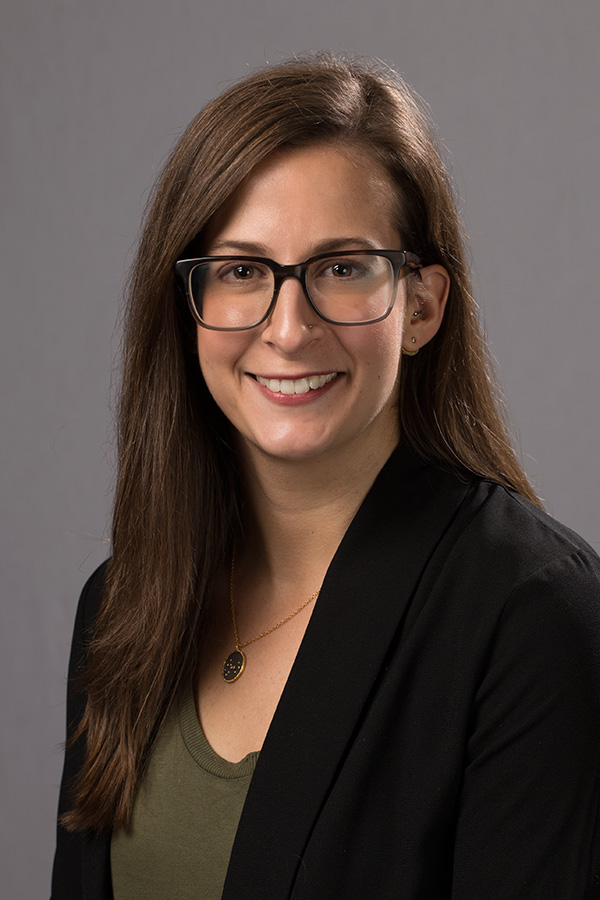Pamela Meadows
Curator
Boulder Museum of Contemporary Art (BMoCA)


Congratulations to all of the artists who submitted their work to The Hopper Prize! The experience of jurying this cycle’s applicants was an honor. I am appreciative of the opportunity to delve into such a compelling range of artistic practices and explore how this group of exceptional applicants presented the breadth of their interests through the scope of various artistic mediums.
This year’s submissions represented a range of ideas and varied perspectives that crossed a wide array of mediums. As a contemporary art curator, I felt drawn to the ways in which artists were expanding their language and understanding of materials, while fearlessly being vulnerable and generous with sharing so much of themselves within each application. I was met with gripping practices that explored themes such as personal identity, environmental justice and advocacy, memory, and healing to name a few. Throughout the review process, I found myself returning to works that explored hybridity and a boundlessness to being simply one, definable thing.
Prize-winning artists Azadeh Gholizadeh, Galina Kurlat, and Britt Ransom emerged as highlights from this year’s cohort of applicants. Initially, each of their practices felt thematically independent, or separate from one another. Gholizadeh’s tapestries blur the boundaries of 2D and 3D, shapeshifting from flat tapestries to sculptural objects that explore the body, landscape, and fragmentation of memory. Despite the slowness of her hand-based process, the work exudes a kind of fast, new media intensity like a glitch or pixelation on a screen. Ransom utilizes emergent, digital fabrication technologies to transform data and material gathered from the environment to investigate the form and function of society and nature. Kurlat’s non-figurative, lumen prints address themes of identity, mortality, and the body. Despite their abstract, painterly appearance, the artist uses a camera-less photography process called a solar photogram.
While their practices ranged thematically, Gholizadeh, Kurlat, and Random investigated a deep sense of questioning, challenging, and re-presenting what materiality can do when pushed. Now, perhaps more than ever, contemporary artists are defying clear distinct boundaries of what something is, in advocacy of what it can be. Their work resists definitive categorization or definition, enriching their conceptual framework and prompting the viewer to look more closely at the things that surround us.
Pamela Meadows is a Denver-based curator with a focus on contemporary, site-specific/conscious art. Her curatorial vision is aimed towards place making, specifically developing immersive experiences that prompt dynamic, participatory engagement. Her research provides critical discourse through the lens of the visual arts and interdisciplinary practice. Meadows is currently the Curator at The Boulder Museum of Contemporary Art (BMoCA).
Prior to her appointment as Curator at BMoCA, Meadows served as the Director & Curator of the University of Northern Colorado Galleries in Greeley. She has curated a diverse range of exhibitions at institutions such as: The Museum of Fine Arts, Houston (Houston, TX), Find & Form Space (Boston, MA), The Samek Art Museum at Bucknell University (Lewisburg, PA), The Diego Rivera Gallery, (San Francisco, CA), Receiver Gallery (San Francisco, CA), The New Art Center (Newton, MA), and Montserrat Galleries (Beverly, MA).
Meadows has published articles in The American Alliance of Museums: The Center for the Future of Museums, Big Red & Shiny, and Art New England among others. Most recently, she published the exhibition catalog for Yucca Fountain (2020), in collaboration with artists Andrew Bablo and Helen Popinchalk. She has guest contributed to exhibition catalogs such as, Wanderlust: Actions, Traces, Journeys 1967-2017 by Rachel Adams Miller and SEVEN: A Performative Drawing Project 2013-2015 co-authored by Leonie Bradbury and Maggie Cavallo.
Meadows holds a Masters in Exhibition and Museum Studies from the San Francisco Art Institute and a Bachelor of Arts in Art History and Museum Studies from Juniata College.
copyright © 2024 hopperprize.org • Privacy Policy • Terms & Conditions